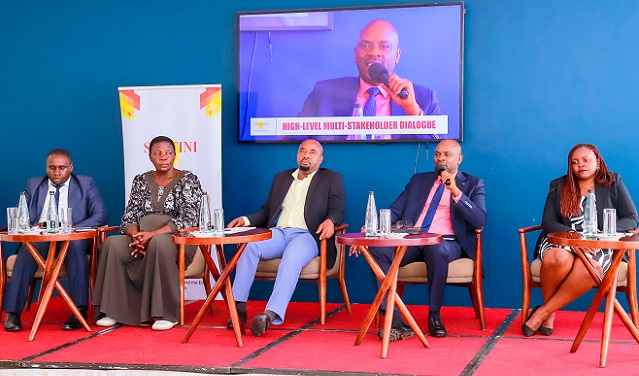
Kampala, Uganda | THE INDEPENDENT | The government has been called out on its failure or reluctance to act on the violation of the rights of Ugandans, environmental degradation, and poor competition practices by foreign investors especially in the extractives industry.
It comes amidst persistent complaints by local workers and communities where such investments like oil and gas, mining, energy, and construction are taking place.
Speaking at a multi-stakeholder dialogue on the ‘‘Implications of Sino-Africa extractives related investments on the host communities’ Economic, Social, Cultural and Environmental Rights,’’ participants blamed the government for a lack of political will to tackle the question.
The event was called by regional trade rights NGO, SEATINI Uganda, to help push for pro-development investment policies, laws, and agreements that balance the rights of investors and their obligations to the State and the host communities.
Constance Okollet, the champion of Osukuru United Women’s Network based in Tororo, says since the mining activities at the phosphate project commenced, they have been fighting with the investors over the negative effects of the activities but in vain.
These include excessive dust, vibrations, and accidents, but also direct actions on individuals like denial of fatherhood for the children that the foreign workers have with the local women.
Okollet also claims corruption because, according to her, leaders who are allowed to enter the highly guarded premises for fact-finding never bring back feedback to the communities.
She adds that pits that result from mining activities are before covered, yet the resultant accidents involving residents and their animals are never compensated, with even the local leaders seemingly helpless, yet the poor locals keep going in to ask for employment despite the poor conditions.
The overall objective of the dialogue was also to deliberate on the implications of the Sino-Africa/Uganda energy-related investments on the host communities’ Economic, Social, Cultural, and Environmental rights.
SEATINI Uganda Program and Communication Manager, Herbert Kafeero, said that at SEATINI they believe that the investors must not violate the rights of Ugandans and that local populations must be fully involved in the value chain.
However, Kafeero says, that instead, with all the incentives that the government gives foreign investors, the locals are likely to be left worse off than they were before the Investments came to their areas.
SEATINI calls for the review of all policies and also operationalizes the Minimum Wage Law so that there is justification for the incentives that the state offers them.
Workers’ Representative in Parliament, Arinaitwe Rwakajara absolved parliament on the lack of laws, doubting that even if there were adequate legislation, there would be adequate political will for enforcement.
He gave the example of the Minimum Wage Bill 2015 that parliament passed in 2019 but that the Ministry of Gender, Labour and Social Development advised the president against signing.
He says that many laws can be used to handle investor-related concerns including the Labour Act, the Investment Code, and the Workers’ Union Act, but he says these are all hard to implement, because, for example, foreign investors will not allow workers to join Unions.
He said that there is a need for concerted efforts to compel the government to change its attitude towards foreign investors vis-a-vis local employees and the host communities.
Bernard Mujuni, the Commissioner, Equity and Rights at the Ministry of Gender, Labour and Social Development, said they are aware of what happens at the workplaces especially by foreign investors, adding that there is a need for a better legislative framework.
According to him, even the recently passed Competition Law should be reviewed to ensure that investors who are given government incentives are barred from some activities like retailing.
Mujuni urged the parliament to support the Social Impact Assessment and Accountability Bill which he hoped would go a long way in answering some of these concerns.
Mujuni added that it is also becoming harder to implement some policies as many Chinese have acquired Ugandan citizenship but in many cases, they are considered foreign investors.
This was also cited in the report “Sino-Africa Relations: Understanding Uganda’s Environmental and Human Rights Issues and Lessons from African Countries,” compiled by SEATINI and Climateworks Foundation.
This was in reference to the acquisition of land by foreigners which is barred by the Uganda Constitution 1995.
“Therefore, foreign investors can only access land through leasing, although there are several incidences where Chinese investors own land, some through gaining Ugandan citizenship, while maintaining their Chinese business interests.”
*****
URN
 The Independent Uganda: You get the Truth we Pay the Price
The Independent Uganda: You get the Truth we Pay the Price





